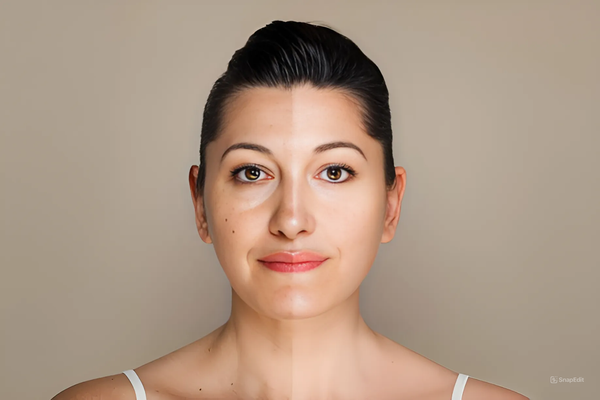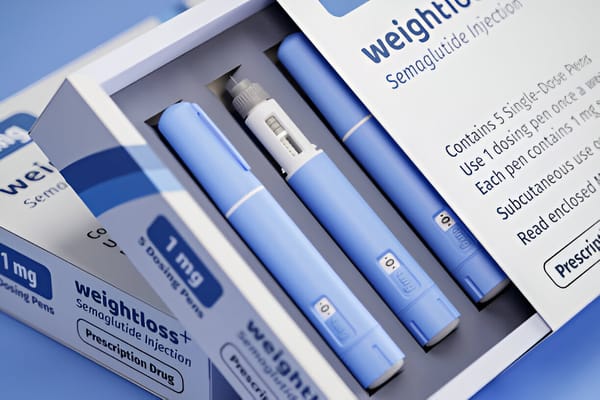Eggsperiment: Harvard Medical Student’s 720-Egg Diet Reveals Surprising Cholesterol Findings
Harvard medical student Dr. Nick Norwitz consumed 720 eggs in a month and saw his LDL cholesterol levels drop by 20%. Explore the science behind cholesterol homeostasis and what this experiment reveals about nutrition.

In the world of health and nutrition, eggs have long been a controversial topic. Are they harmful due to their cholesterol content, or are they a powerhouse of nutrients? Dr. Nick Norwitz, a Harvard medical student with a PhD from Oxford, decided to challenge conventional wisdom and embarked on a month-long experiment consuming 720 eggs—an average of 24 eggs per day. His goal: to understand the effects of this extreme diet on his cholesterol levels and metabolic health. The results, which saw his cholesterol levels drop by nearly 20%, are not only counterintuitive but provoke a broader discussion about how we understand dietary cholesterol.
Breaking Down the Experiment: 720 Eggs in 30 Days
Dr. Norwitz began this radical diet to “invoke intellectual provocation” regarding the extremes of dietary messaging. Social media is flooded with polarized opinions on what constitutes a “healthy” or “unhealthy” diet, and Norwitz wanted to challenge the idea that cholesterol-rich foods automatically lead to increased bad cholesterol (LDL). Consuming 24 eggs per day led him to ingest over 5,000 mg of dietary cholesterol daily, a number that greatly exceeds typical recommendations.
Despite this cholesterol overload, Norwitz’s LDL levels didn’t rise as expected. They dropped by 2% in the first week and continued to fall, ultimately showing an 18% decrease by the end of the month.
The Science Behind Cholesterol Homeostasis
At the core of Norwitz’s findings is the body’s natural ability to maintain cholesterol homeostasis. When dietary cholesterol intake increases, the body often compensates by reducing endogenous cholesterol production. The liver plays a key role in this process by releasing a hormone called Choleson, which inhibits further cholesterol synthesis. This built-in regulatory mechanism is why many people, including Dr. Norwitz, may see minimal impact on their blood cholesterol levels even when consuming high-cholesterol diets.
This phenomenon contradicts long-held beliefs that dietary cholesterol directly correlates with increased blood cholesterol, particularly LDL, which is associated with heart disease risk. However, studies have shown that cholesterol metabolism is more complex than previously understood. For some people, especially those who are metabolically healthy or insulin-sensitive, the body is more adaptable in maintaining balance despite variations in dietary intake.
The Lipid Triad: A New Understanding of Cholesterol
One of the most intriguing outcomes of this experiment is how Dr. Norwitz’s cholesterol profile transformed. As a ketogenic dieter, Norwitz experienced what is known as the “lipid triad,” where individuals present with elevated LDL, elevated HDL (good cholesterol), and low triglycerides. This triad is considered a metabolic signature of a shift from carbohydrate-burning to fat-burning, characteristic of low-carb or ketogenic diets.
While LDL levels are typically viewed as negative, Norwitz’s case suggests that for some individuals, the entire lipid profile must be considered rather than focusing solely on LDL. High HDL and low triglycerides are markers of cardiovascular health, and it is possible that for lean, insulin-sensitive individuals like Norwitz, higher LDL is part of a healthy metabolic adaptation to low-carb diets.
Reintroducing Carbs: The Cholesterol Drop
Another notable aspect of the experiment was the dramatic drop in LDL when Norwitz reintroduced carbohydrates in the final two weeks of his diet. By adding moderate amounts of fruit, including blueberries, bananas, and strawberries, Norwitz saw his LDL levels plummet. His 60 grams of net carbs per day were enough to impact his cholesterol without completely reversing his ketogenic state.
This finding highlights the delicate balance between macronutrient intake and metabolic health. For lean, metabolically flexible individuals, minor adjustments in diet—like introducing natural sources of carbohydrates—can lead to significant shifts in cholesterol levels. This raises questions about whether dietary guidelines need to be more personalized, particularly for individuals on specialized diets like keto or low-carb.
A Challenge to Conventional Dietary Guidelines
The American Heart Association recommends limiting daily cholesterol intake to around 300 mg and suggests that no more than 6% of daily calories should come from saturated fat. Dr. Norwitz’s experiment—where he consumed far beyond these recommendations—calls into question the universality of such guidelines.
Norwitz is not alone in raising doubts about one-size-fits-all dietary advice. Recent research has shown that individuals respond differently to the same foods based on their genetics, metabolism, and overall health. For instance, some studies suggest that for healthy individuals without metabolic syndrome or diabetes, moderate consumption of eggs does not lead to elevated LDL or increased heart disease risk. Eggs can improve the levels of HDL cholesterol, which is beneficial for heart health.
The Bigger Picture: The Need for Nuanced Dietary Conversations
The implications of Dr. Norwitz’s experiment go beyond eggs and cholesterol. It underscores the importance of approaching nutrition with nuance and understanding that blanket dietary recommendations may not apply universally. The diet that works for one individual may not be suitable for another, and factors like genetics, insulin sensitivity, and overall lifestyle must be taken into account.
For individuals following specialized diets—such as ketogenic or low-carb—the relationship between dietary intake and cholesterol levels can differ significantly from standard models. Dr. Norwitz’s case suggests that extreme dietary approaches, when monitored and executed by those with specific health profiles, may not carry the risks traditionally associated with them.
What Can We Learn from the “Eggsperiment”?
While Norwitz’s 720-egg experiment might not be a practical diet for most people, it offers valuable insights into how our bodies process cholesterol and how dietary fat intake interacts with metabolism. Here are some key takeaways:
- Cholesterol Homeostasis: The body regulates cholesterol production based on dietary intake. For many people, especially those who are lean and insulin-sensitive, dietary cholesterol may not lead to an increase in LDL levels.
- The Lipid Triad: High LDL, high HDL, and low triglycerides are markers of metabolic adaptation in those following low-carb or ketogenic diets. This lipid profile may be healthier than previously understood in specific populations.
- Personalized Nutrition: One-size-fits-all dietary guidelines may not work for everyone. Personalized approaches, which take into account factors like insulin sensitivity and metabolic flexibility, are essential for optimizing health.
- Carbohydrate Balance: Even small changes in carbohydrate intake can influence cholesterol levels, as shown by Norwitz’s dramatic LDL drop after reintroducing fruit into his diet.
Final Thoughts
Dr. Nick Norwitz’s “eggsperiment” may seem extreme, but it highlights the complexity of diet, cholesterol, and metabolic health. The key lesson is that nutrition is highly individual, and what works for one person may not work for another. The next step is to continue researching the impacts of various diets on different populations, challenging old assumptions, and embracing a more personalized approach to health.
At Behealthful One, we encourage our readers to stay curious and keep exploring the evolving landscape of nutrition science. While 24 eggs a day may not be the right choice for everyone, Dr. Norwitz’s findings remind us that the answers to health are not always as simple as we think.
Sources
- Harvard medical student ate over 700 eggs in a month — and his cholesterol levels actually dropped: https://nypost.com/2024/09/25/lifestyle/harvard-medical-student-nick-norwitz-ate-720-eggs-in-a-month-and-cholesterol-levels-dropped/
- I Ate 720 Eggs in 1 Month. Here's What Happened to my Cholesterol: https://www.youtube.com/watch?v=bhUMUCoJOsc





